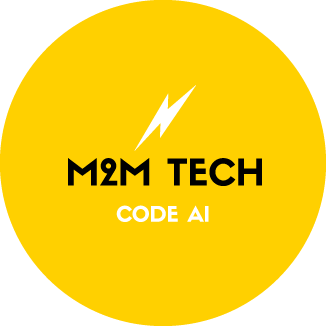What is Marketing Analyst?
A marketing analyst is a professional who plays a critical role in evaluating and interpreting data related to marketing activities and consumer behavior. They use data analysis techniques and market research methodologies to gain insights into the effectiveness of marketing campaigns, customer preferences, and market trends. By examining data from various sources, such as customer surveys, website analytics, social media metrics, and sales data, marketing analysts help businesses make informed decisions and optimize their marketing strategies.
One of the primary responsibilities of a marketing analyst is to analyze marketing data to identify trends and patterns. They use statistical methods and data visualization tools to process and interpret the data, revealing valuable insights about consumer behavior and the performance of marketing efforts. These insights guide marketing teams in understanding what resonates with their target audience and where improvements can be made to maximize marketing ROI.
Market research is an integral part of a marketing analyst's role. They conduct research to understand the market landscape, consumer preferences, and competitive dynamics. This research helps businesses identify market opportunities, assess market demand, and gain a competitive advantage. By keeping abreast of industry trends and customer needs, marketing analysts contribute to the development of effective marketing strategies that align with the company's overall objectives.
Additionally, marketing analysts are responsible for measuring the performance of marketing campaigns. They track key performance indicators (KPIs) such as conversion rates, click-through rates, customer acquisition costs, and customer lifetime value. By assessing campaign performance, marketing analysts provide valuable feedback to marketing teams, enabling them to refine their strategies and optimize future campaigns for better results.
Effective communication is crucial for marketing analysts as they need to present their findings and insights to various stakeholders, including marketing teams, managers, and executives. They produce reports and presentations that are clear, concise, and actionable, making it easier for decision-makers to understand and act upon the data-driven recommendations.
“ Marketing Analysts use data analytics to measure marketing campaign performance, track customer engagement, and identify opportunities to enhance marketing strategies.”
The most important things to consider
Data Analysis and Interpretation: Marketing analysts must have strong data analysis skills to process and interpret marketing data effectively. They collect and analyze data from various sources, such as customer surveys, website analytics, social media metrics, and sales data, to gain insights into consumer behavior, campaign performance, and market trends. By understanding the data, marketing analysts can make data-driven recommendations and strategies to optimize marketing efforts and achieve business goals.
Market Research and Competitive Analysis: Market research is a core aspect of a marketing analyst's role. They conduct research to understand market dynamics, customer preferences, and industry trends. Competitive analysis helps them assess the strengths and weaknesses of competitors and identify opportunities for differentiation. By staying informed about the market landscape, marketing analysts can develop marketing campaigns that resonate with the target audience and drive brand awareness and customer engagement.
Marketing Campaign Performance Measurement: Marketing analysts play a crucial role in evaluating the performance of marketing campaigns. They track key performance indicators (KPIs) such as conversion rates, click-through rates, return on investment (ROI), and customer acquisition costs. By analyzing campaign data, marketing analysts identify successful strategies and areas for improvement. These insights guide marketing teams in refining their approaches and making data-informed decisions for future campaigns.
- Salary Low: $48,400.00
- Salary High: $144,958.00
- Education Needed: Bachelor's

Job Duties
- Develop policies and administer programs to promote industrial and commercial business investment in urban and rural areas
- Design market research questionnaires
- Conduct social or economic surveys on local, regional or national areas to assess development potential and future trends
- Plan development projects and coordinate activities with representatives of a wide variety of industrial and commercial enterprises, community and business associations and government agencies
- Assess business opportunities and develop strategies to attract venture capital
- Respond to enquiries from members of the business community and general public concerning development opportunities
- Review and evaluate commercial or industrial development proposals and provide advice on procedures and requirements for government approval
- Conduct surveys and analyze data on the buying habits and preferences of wholesale or retail consumers
- Evaluate customer service and store environments
- Conduct research on consumers, competitors and the market place to identify trends to optimize marketing strategies for industrial and commercial products
- Analyze promotional and marketing campaigns to identify improvements
- Develop social and economic profiles of urban and rural areas to encourage industrial and commercial investment and development
- Prepare reports, research papers, educational texts or articles
- Develop and apply E-commerce strategies
- Provide consultation on planning and starting of new businesses
Employment Requirements
- A bachelor's degree in economics, commerce, business administration or public administration is required.
- Certification as a certified economic developer (Ec.D.) may be required.
- Certification as a Certified Marketing Research Professional (CMRP) may be required.








